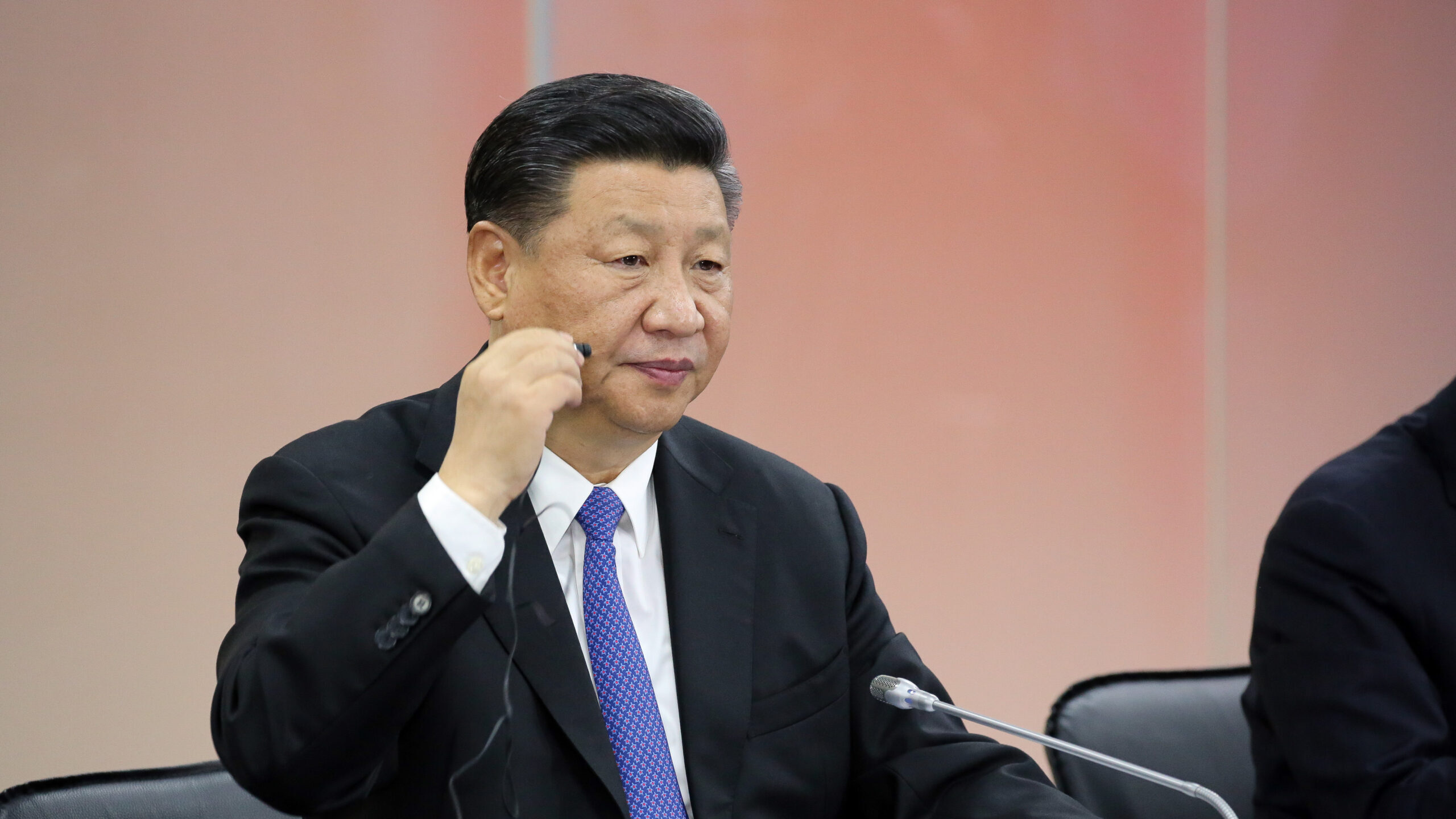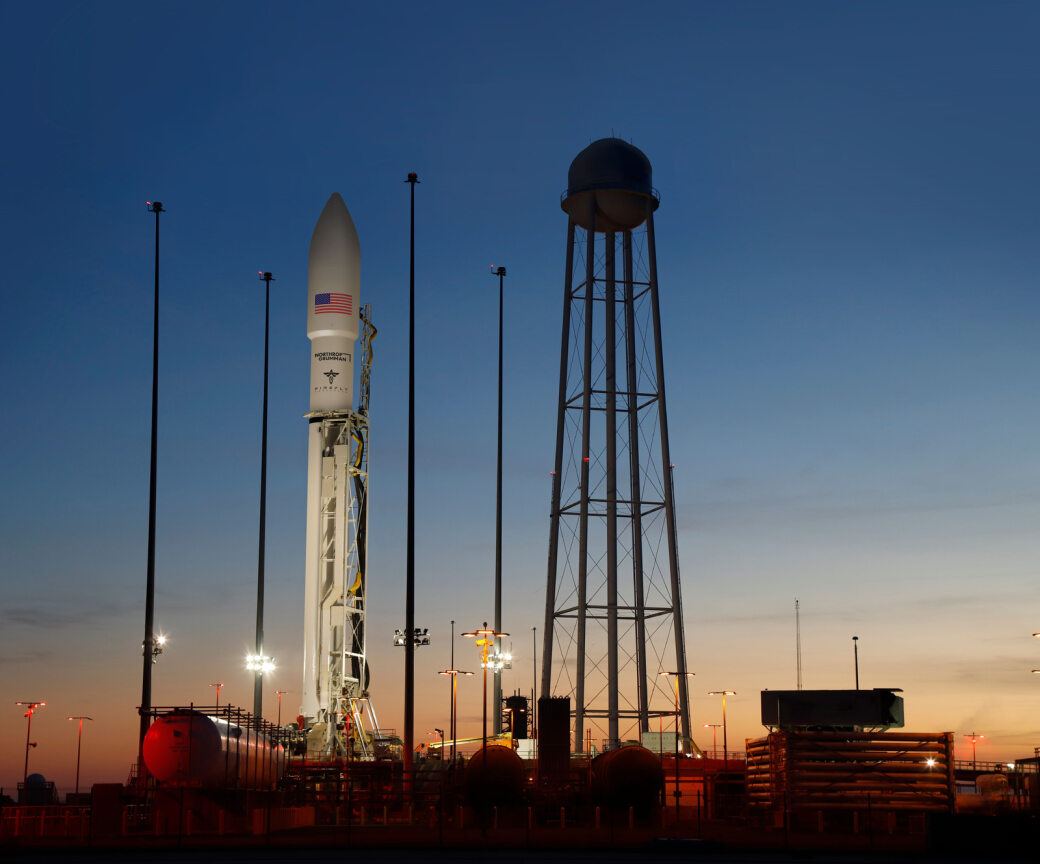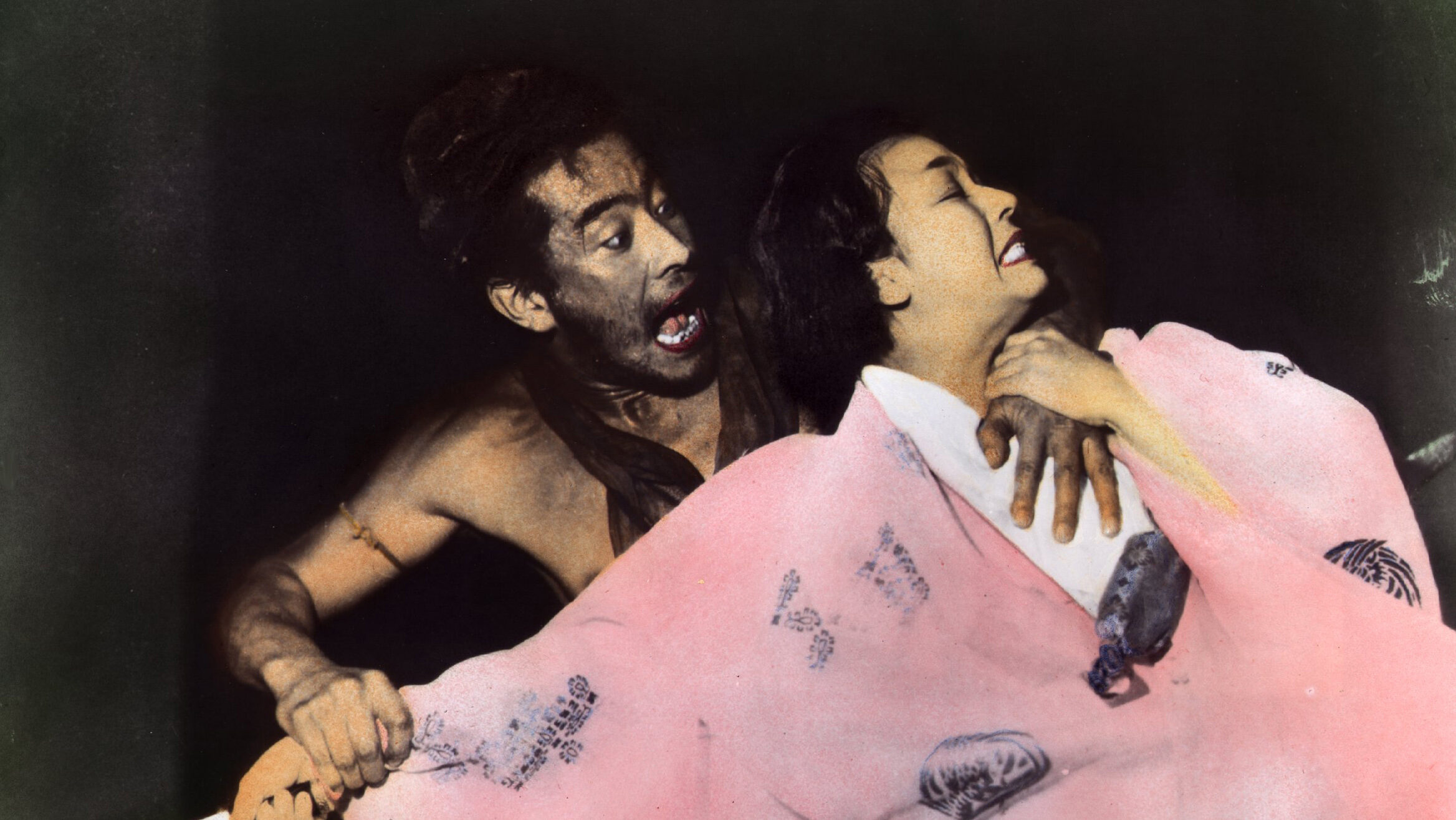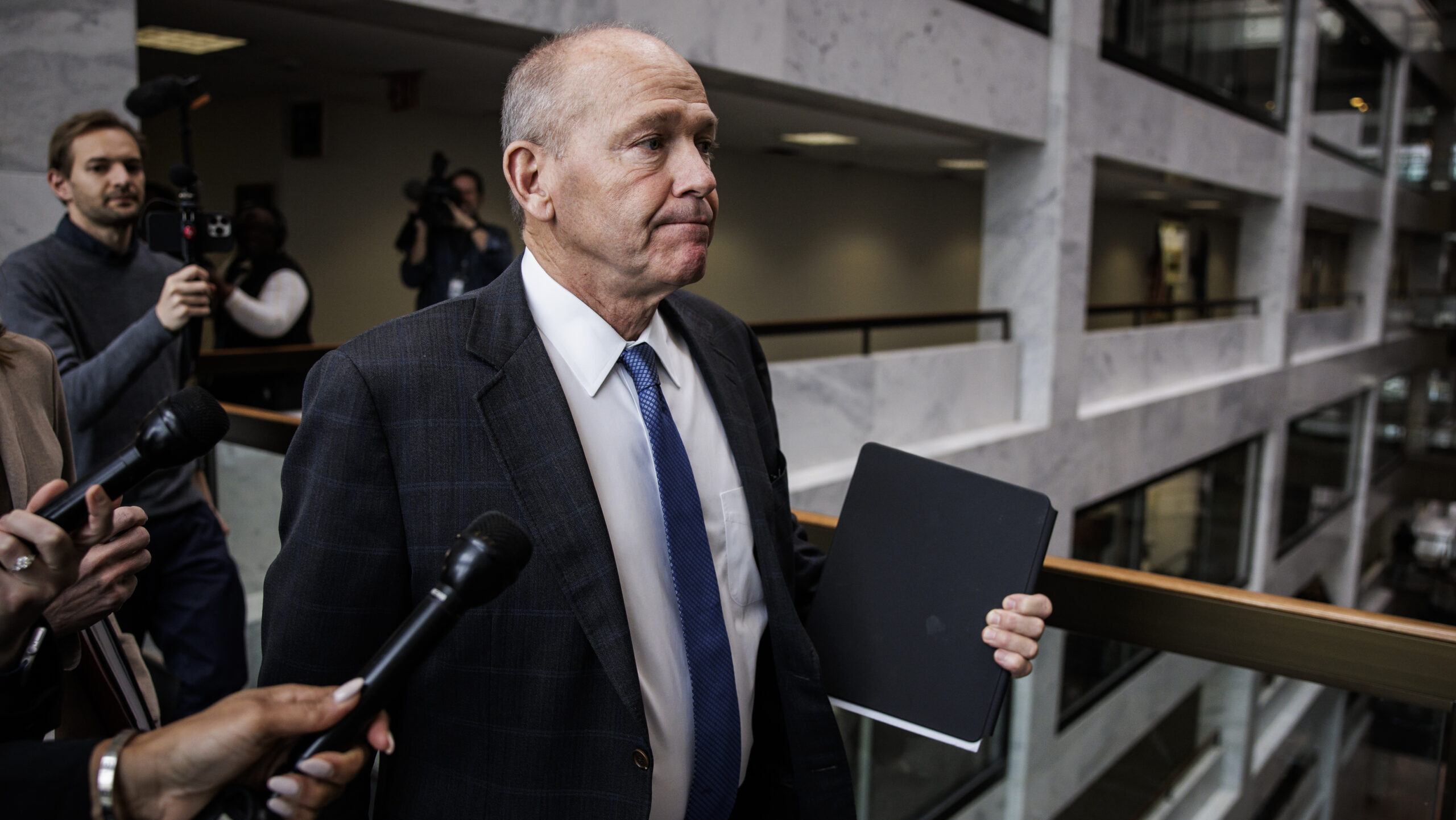
Xi Jinping, China’s president, adjusts his earpiece during a session on the opening day of the Eastern Economic Forum in Vladivostok, Russia, on Tuesday, Sept. 11, 2018. (Andrey Rudakov/Bloomberg via Getty Images)
SYDNEY — In the wake of Taiwan’s election of a new president, China’s diplomatic corps went into overdrive criticizing other nations who offered their congratulations and, prior to the election results, warned Australia in particular in ominous terms.
The Australia threat, one analyst said, was the latest evidence of China’s return to “wolf warrior” diplomacy, leading by aggressive diplomacy, full of overt and implied threats.
“It is very ‘wolf warrior’ in style and I think it underlines that from Beijing’s perspective, there is no real ‘reset’ or ‘stabilisation of the relationship,'” Malcolm Davis of the Australian Strategic Policy Institute told Breaking Defense in an email just prior to the election.
Davis was referring to an extraordinary opinion piece published in a major Australian newspaper the night before Taiwan went to the polls in which China’s ambassador warned that Canberra’s support for “separatist forces” — which in the past has been been code for Taiwan’s victorious Democractic Progressive Party (DPP) presidential candidate — could push the Australian people “over the edge of an abyss.”
“As for certain forces in Australia, it is absurd and dangerous to talk about peace and stability across the Taiwan Straits while condoning and supporting ‘Taiwan independence’. It is illogical and harmful to link China’s internal affairs with Australia’s security and safety. If Australia is tied to the chariot of Taiwan separatist forces, the Australian people would be pushed over the edge of an abyss,” Ambassador Xiao Qian wrote.
Beijing’s tone stayed icy after Lai Ching-te’s electoral victory.
After the United Kingdom Foreign Secretary David Cameron praised Taiwan’s “vibrant democracy,” the Chinese embassy in London criticized the UK’s “incorrect actions.”
“We urge the United Kingdom to acknowledge the position that Taiwan is a province of China, cautiously handle Taiwan-related matters in accordance with the one-China principle, stop any remarks that interfere in China’s internal affairs,” the embassy said in a statement published on its official WeChat account.
The Chinese embassy in Japan filed a diplomatic protest after Japanese Foreign Minister Yoko Kamikawa congratulated the new Taiwanese president on his victory.
“We solemnly urge the Japanese side to … refrain from disrupting peace and stability across the Taiwan Strait and China-Japan relations,” the Chinese embassy said, according to Reuters.
When Philippines President Ferdinand Marcos offered his congratulations to Lai, the Chinese Foreign Ministry bluntly warned that the island nation — which has had several tense run-ins with China in the South China Sea — should “refrain from playing with fire on the Taiwan question.”
In perhaps the most dramatic move that Taipei suggested is connected to the outcome of the election, just hours after Taiwan voted, the island nation of Nauru announced it would sever ties with Taiwan in favor of China.
“At this particular time, when many democratic nations across the world are congratulating Taiwan on the smooth completion of its elections and on a victory for democracy, the Beijing authorities chose such a way to suppress Taiwan, which constitutes an attack on the order and stability of the international community,” Taiwan’s Foreign Ministry said Monday. “Beijing’s actions are a repudiation of democratic values and an open challenge to the international order. Responsibility for all of this lies with Beijing.”
But why did Nauru choose that time to sever relations? Some light was cast Tuesday upon the surprise announcement in a story by Focus China, the state news agency of Taiwan. The deputy foreign minister, Tien Chung-kwang, alleged Nauru had asked for a large sum of money to help cover “the financial gap left by the closure of the Nauru Regional Processing Center (RPC, an offshore Australian immigration detention facility). “Nauru also needed money to build stadiums for the 2026 Micronesian Games and deal with the impending departure of Australia’s Bendigo Bank from Nauru, Tien said.
Tien said the Nauru government was “comparing” offers from Taiwan and the People’s Republic of China. So, while Nauru may not have acted only because of the Taiwanese election, it seems reasonable to assume China saw a rare opportunity to whittle away at the countries that still recognize Taiwan. And to do it and send a clear message to Taiwan’s new president that China had the power to slice the number of precious and dwindling number of countries that recognize his country. With Nauru’s departure, there are a dozen left.
For its part, the government of Nauru said it was “in the best interests” of the country to recognize China over Taiwan, according to Reuters. The nation has recognized China twice before, the news agency said.
The US joined Taiwan in criticizing Nauru’s decision.
“While the Government of Nauru’s action on January 15 to sever its diplomatic relationship with Taiwan is a sovereign decision, it is nonetheless a disappointing one,” the State Department said. “Taiwan is a reliable, likeminded, and democratic partner. The PRC often makes promises in exchange for diplomatic relations that ultimately remain unfulfilled. We encourage all countries to expand engagement with Taiwan and to continue to support democracy, good governance, transparency, and adherence to the rule of law.”
As for Australia, the government’s Department of Foreign Affairs and Trade (DFAT) released a muted statement congratulting Taiwan on its election and the people’s “peaceful exercise of their democratic rights.”
That, ASPI’s Davis said, was evidence the Australian government would take a careful approach as Canberra grapples with just how to maintain the relatively benign relations between the two countries.
“Based on DFAT response to the Taiwanese election outcome, I’m willing to bet [Albanese] and [Foreign Minister Penny] Wong won’t explicitly support the new Taiwanese President — but the real test will come once China ratchets up its coercive actions against Taiwan,” Davis wrote. “We’ll have to see whether [Albanese] is prepared to stand firm with the US and others to stand up to Beijing.”












